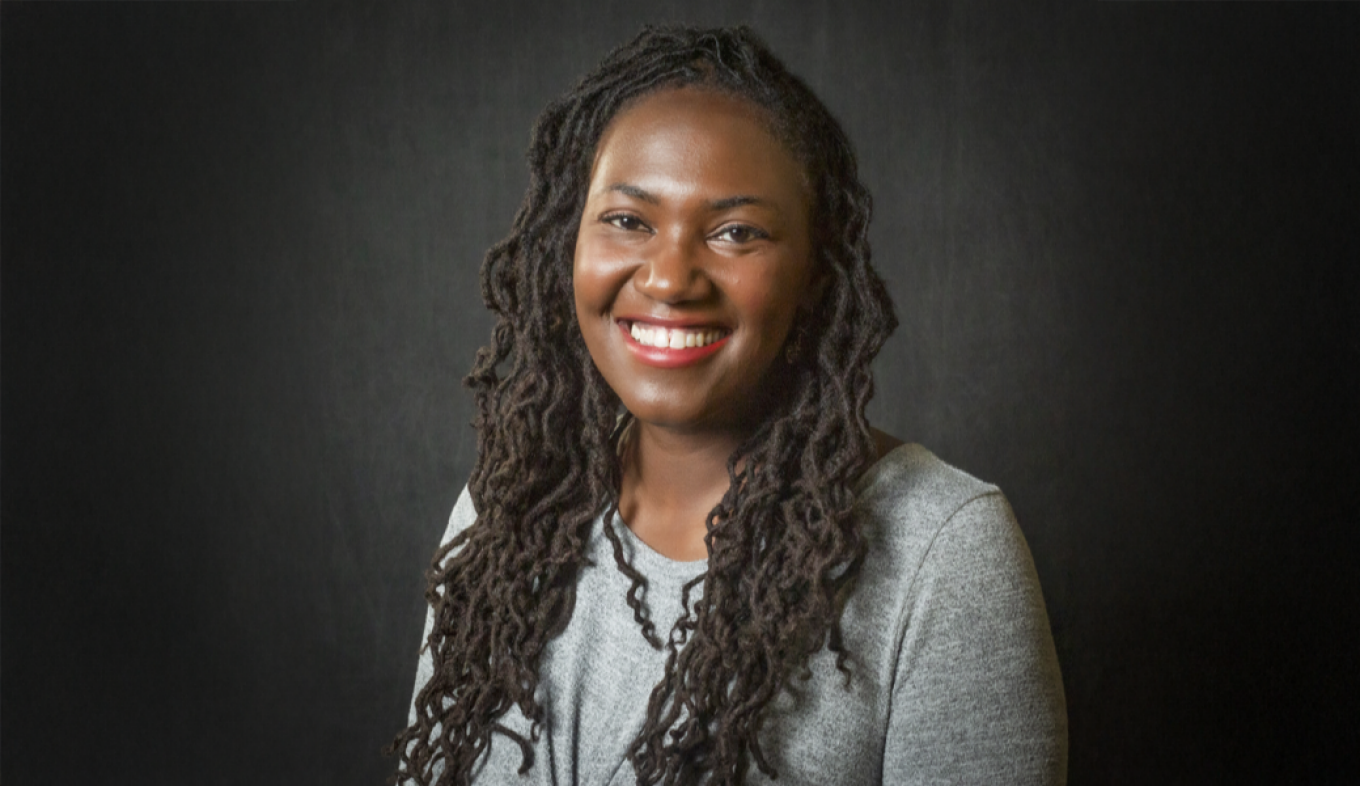
Published November 5, 2024
BY NICOLE MEHLMAN-DAVIDOW
Award-winning GSE scholar studies social support networks and their impact on minoritized college student success and well-being
2024 has been a busy and fulfilling year for Paris Wicker. The recent recipient of the Association for the Study of Higher Education (ASHE) Bobby Wright Dissertation of the Year Award has garnered widespread recognition for her research, with her work being both published and celebrated.
Wicker is an assistant professor of educational leadership and policy at the University at Buffalo's Graduate School of Education. Her research focuses on the success and well-being of Black and Indigenous students, faculty and staff.
Her research, “Well-Being and Support Network Affiliations for Black and Indigenous College Students during the COVID-19 Pandemic,” was recently published in the Education Sciences journal.
Wicker analyzed 1,200 Black and Indigenous student responses from the Healthy Minds Study. This web-based survey examines mental health and service use among college students, with over 850,000 respondents from over 600 colleges and universities. Through this survey, Wicker found that the amount and diversity of well-being support networks decreased during the COVID-19 pandemic.
Using social network analysis, her research revealed differences in support by well-being level and gender. Wicker also found that faculty and advisors played key roles in support networks for Black and Indigenous men and those with higher well-being, while family and friends remained vital for all.
In contrast, Black and Indigenous women and those with lower well-being perceived less institutional support. Teaching assistants, student affairs staff and religious connections also played an encouraging and unique role for students with less support.
The effect of support networks for Black women in STEM
This research builds upon Wicker’s previous work, which also emphasized how social networks and relationships are key to the success of minoritized college students. While completing her doctoral coursework at the University of Wisconsin-Madison, she co-authored research that was published in The Review of Higher Education, which focused on Black women studying STEM-related subjects in higher education. Wicker’s co-authors include Dorian McCoy, PhD, University of Tennessee-Knoxville, Rachelle Winkle-Wagner, PhD, University of Wisconsin-Madison, and University of Wisconsin-Madison PhD student Imani Barnes.
According to data published by the National Science Foundation, only 2.5% of all STEM jobs nationwide are held by Black women. Researchers have also found Black students are more likely to shift away from an initial academic interest in STEM than their white peers.
Wicker and her team explored why these disparities exist and wanted to determine best practices for closing the gap. They found that Black women pursuing undergraduate degrees in STEM create and rely on dynamic social networks to persist and overcome barriers in their education. Wicker and her co-authors sought to shed light on how relationships and community support build success for Black women as they pursue education in STEM fields.
“Knowing there are disparities in Black women staying in STEM, we wanted to find out which relationships matter most to these students and which relationships they felt led to their success,” said Wicker. “Often research takes a deficit approach that Black women are not staying in STEM, so we instead focused on a positive narrative that relationships matter.”
Using a critical narrative approach, the authors focused on how strong relationships at Spelman College —a private, historically Black women’s liberal arts college in Atlanta, Georgia — helped Black women thrive in STEM degree programs.
“We focused on historically Black colleges because they are producing so many STEM professionals,” explained Wicker. “They go from these supportive spaces to predominantly white spaces that can be less welcoming and supportive. We wanted to know how their support systems changed and how that transition for them went.”
Students’ families remaining connected to the campuses their children were attending was a key piece of their success. In “A Web of Support: A Critical Narrative Analysis of Black Women's Relationships in STEM Disciplines,” the authors wrote, “It was not simply that the Black women alumnae identified multiple forms of support, but that the alumnae described ways that the supporters were linked to their academic program.”
No longer deficit-focused
Moving away from a deficit-focused depiction of students was important to Wicker and her team. They did not want to depict students as “lacking agency and waiting for others to initiate support.” Instead, the study proved that women’s agency in identifying, creating and managing crucial social relationships helped them thrive in STEM programs while at the same time highlighting the key role that institutions must play in facilitating conditions where these vital relationships are more likely to exist and persist.
While their analysis focused on HBCU environments, Wicker and her co-authors further explained that the concepts uncovered should be considered broadly applicable across all types of institutions seeking to support Black women in STEM fields.
“Students of color are bringing assets with them, even when they are historically underserved,” said Wicker. “It is vital that institutions interconnect those familial assets students are bringing with campus resources. That takes quite a bit of work, but we hope this research supports that intentional interconnection is vital to keeping Black women in STEM fields.”
Tuesday News Briefs feature the stories of the Graduate School of Education faculty, students and alumni who are engaged in their communities and making an impact through their hard work, dedication and research initiatives. If you have a story to share, please email us with the details for consideration as a future news feature.